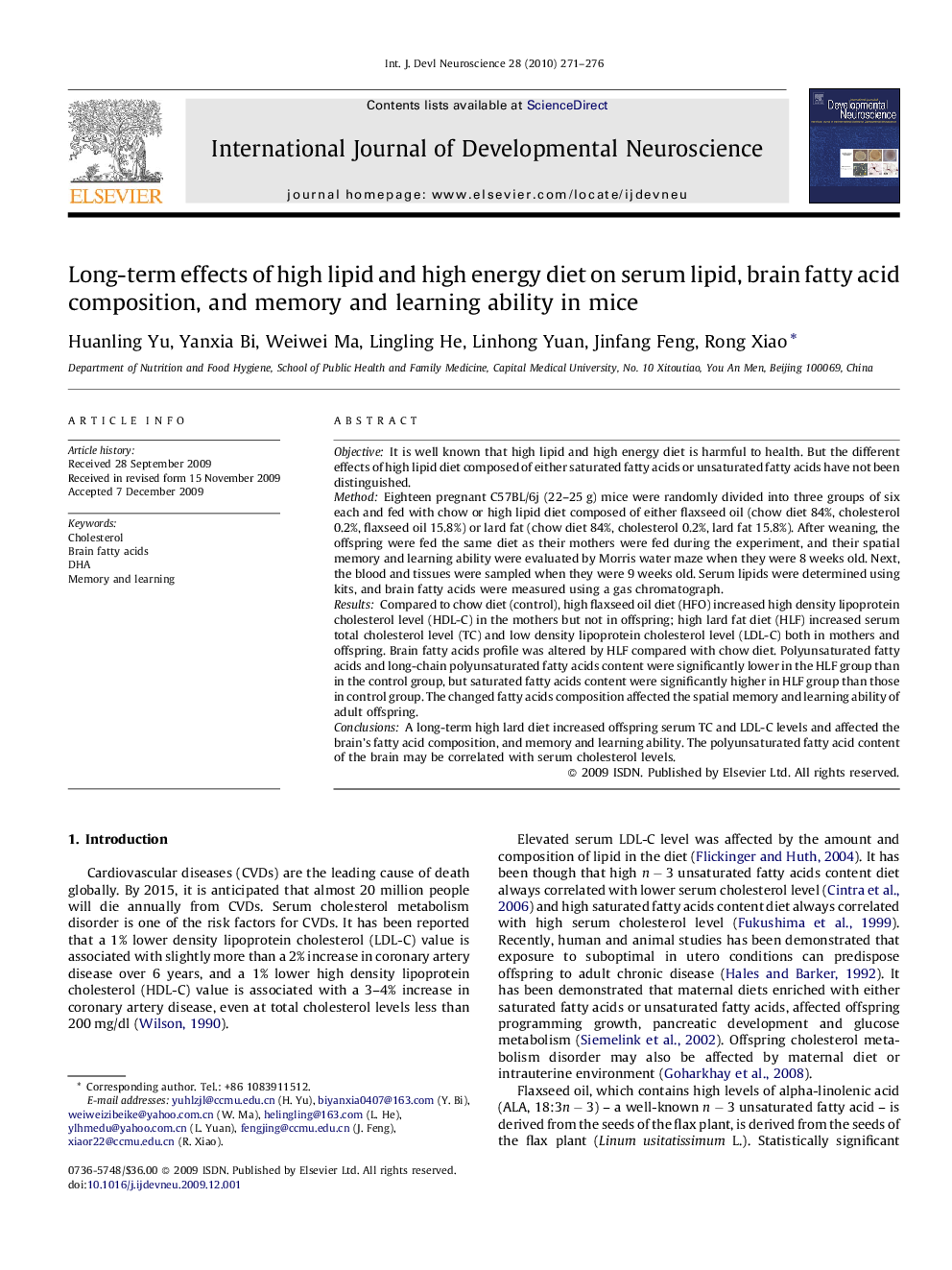| کد مقاله | کد نشریه | سال انتشار | مقاله انگلیسی | نسخه تمام متن |
|---|---|---|---|---|
| 2786727 | 1568429 | 2010 | 6 صفحه PDF | دانلود رایگان |

ObjectiveIt is well known that high lipid and high energy diet is harmful to health. But the different effects of high lipid diet composed of either saturated fatty acids or unsaturated fatty acids have not been distinguished.MethodEighteen pregnant C57BL/6j (22–25 g) mice were randomly divided into three groups of six each and fed with chow or high lipid diet composed of either flaxseed oil (chow diet 84%, cholesterol 0.2%, flaxseed oil 15.8%) or lard fat (chow diet 84%, cholesterol 0.2%, lard fat 15.8%). After weaning, the offspring were fed the same diet as their mothers were fed during the experiment, and their spatial memory and learning ability were evaluated by Morris water maze when they were 8 weeks old. Next, the blood and tissues were sampled when they were 9 weeks old. Serum lipids were determined using kits, and brain fatty acids were measured using a gas chromatograph.ResultsCompared to chow diet (control), high flaxseed oil diet (HFO) increased high density lipoprotein cholesterol level (HDL-C) in the mothers but not in offspring; high lard fat diet (HLF) increased serum total cholesterol level (TC) and low density lipoprotein cholesterol level (LDL-C) both in mothers and offspring. Brain fatty acids profile was altered by HLF compared with chow diet. Polyunsaturated fatty acids and long-chain polyunsaturated fatty acids content were significantly lower in the HLF group than in the control group, but saturated fatty acids content were significantly higher in HLF group than those in control group. The changed fatty acids composition affected the spatial memory and learning ability of adult offspring.ConclusionsA long-term high lard diet increased offspring serum TC and LDL-C levels and affected the brain's fatty acid composition, and memory and learning ability. The polyunsaturated fatty acid content of the brain may be correlated with serum cholesterol levels.
Journal: International Journal of Developmental Neuroscience - Volume 28, Issue 3, May 2010, Pages 271–276